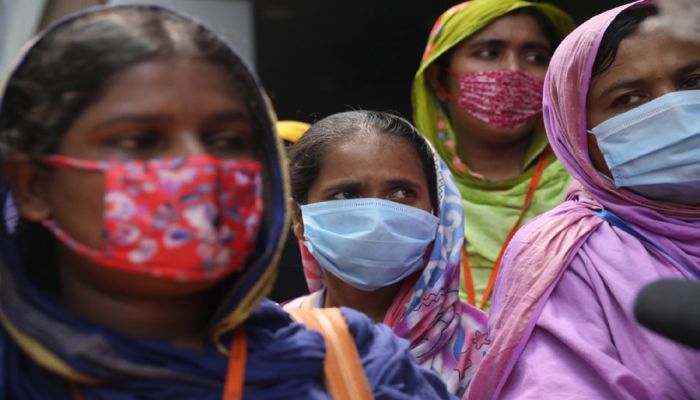
Desk Report
Publish: 07 Jul 2020, 10:43 am

The new coronavirus pandemic in South Asia has seriously affected the livelihoods of more than 1.7 billion people, according to the Global Food Policy Report (GFPR) 2020.
The disruption of supply chains, the lack of access to health and nutrition services, and the overrun of social protection have led to a rise in food and nutrition insecurity in the South Asian region.
It was revealed at virtual launch of some of GFPR 2020 highlights in New Delhi, India, jointly organized by International Food Policy Research Institute (IFPRI) of South Asia, Indian Agricultural Research Council (ICAR) and Trust for Advancement of Agricultural Sciences (TAAS).
IFPRI will publish the full report today (Tuesday) addressing many of the long-standing issues underpinning food insecurity and poverty in light of the COVID-19's impacts on our food systems, according to an IFPRI release.
IFPRI's GFPR 2020 highlights the key role that inclusive food systems play in achieving global poverty , hunger, and malnutrition goals, and provides suggestions to make food systems more inclusive for four disadvantaged groups – smallholders, women, youth, and conflict-affected citizens.
The report also provides analysis on transforming the national food system in several countries like Bangladesh and Ethiopia, and advice on development of food systems in different regions worldwide.
"Food systems provide opportunities to improve food and nutrition security, generate income, and drive inclusive economic growth, but even in prosperous times too many people are excluded from fully participating in them and securing these benefits," said Johan Swinnen, director general of IFPRI.
"In times of crisis like today, inclusion is an even greater imperative for protecting the most vulnerable, " said Swinnen.
However, the report said that South Asia's steady progress over the past decade has reshaped the region 's diverse food systems.
This regional transition was marked by strong economic growth, increasing real wages and the expansion of non-agricultural sectors.
In recent years in South Asia the growth rate of high-value foods has been greater than that of cereals.
The increase in income and greater diet diversity has also led to growth of the food processing sector.
Yet post-harvest losses continue to be high in South and Southeast Asia compared to other regions, it said.
"South Asian economies are transforming. Real wages are rising, shares of agriculture in GDP are declining, and non-farm employment in much of the region has surpassed that of farm employment. These structural changes will bring about changes in food system with new challenges to ensure that food system transformation is efficient, inclusive, and sustainable," said Shahidur Rashid, director South Asia, IFPRI.
The report recommends three key policy levers which will be critical in making the food system transformation inclusive and sustainable: (1) reforming agricultural input subsidies and price supports; (2) improving the targeting of social protection programs; and (3) building effective institutions for governing the emerging food system.
Reforming some of the age-old schemes on agricultural subsidies and pricing policies might free up public funds to spend in supporting more sustainable, balanced and gender-sensitive food systems, GFPR said.
In South Asia, social safety net programs can be effective platforms for making food systems inclusive, it said.
"IFPRI-WFP's Transfer Modality Research Initiative in Bangladesh found that providing young mothers cash transfers combined with nutrition behavioral change reduced child stunting by three-times than the national average" said Akhter Ahmed, senior research fellow and country representative of IFPRI-Bangladesh.
This is substantial evidence on the potential of social transfers to enhance nutrition, he said.
Subscribe Shampratik Deshkal Youtube Channel
© 2024 Shampratik Deshkal All Rights Reserved. Design & Developed By Root Soft Bangladesh